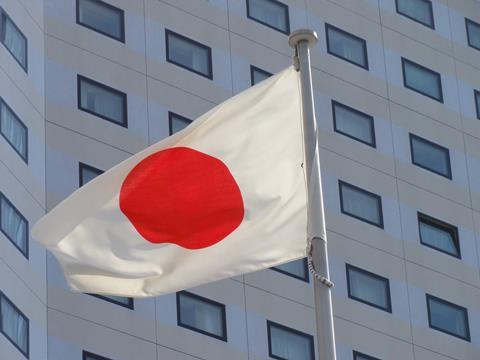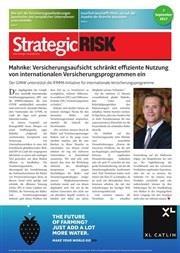Tamaki Kawate, managing executive officer at Mitsui Sumitomo Insurance Group (MSIG), explains how the insurance requirements of Japanese and European businesses differ

StrategicRISK (SR): What are the main reasons why Japanese companies are interested in Europe?
Tamaki Kawate (TK): In view of the limited expansion possibilities in the Japanese domestic market, it is a natural progression for Japanese companies to expand their business to international markets, in order to seek potential growth in areas with stronger demands than in its own domestic market.
Europe as a whole retains a world-leading economy which continuously attracts Japanese companies from various industries. Additionally, Japanese companies highly value the acquisition of innovative and advanced technologies in European companies as well as their cumulative knowledge and experience in such fields. Japanese companies are also interested in environmentally advanced technologies.
SR: What are the risks Japanese companies face when investing or doing business in Europe?
TK: We might say that diversity in Europe has two aspects. Europe is composed of various local markets, which brings complexity in conducting local business. In particular, if companies seek a multi-regional operation in European countries, they are required to meet each local regulation as well as respecting local business practices.
Other aspects might be that investment in ‘advanced’ markets/countries generally tends to be higher than ‘emerging’ markets/countries, which requires a more prudent approach in light of evaluating profitability.
SR: How do Japanese and European businesses differ and what can they learn from each other?
TK: Looking at the insurance industry, for instance in France and Germany, we can find some affinity with Japan in the fundamental business philosophy including the key importance of long-lasting business relationships, and satisfying all stakeholders as well as society as a whole. One aspect we can refer to is the decision-making process which sometimes takes longer in Japan. This is due to careful deliberations between many stakeholders and considerations on the long-term effects of a decision. However, after a decision has been made, you can rely upon it and the execution of the decision can usually proceed in a smooth and efficient manner.
SR: What do you consider to be the main challenges facing the insurance industry?
TK: The development of InsurTech will bring a lot of changes to the insurance industry, both internal and external to the insurance company. Utilisation of artificial intelligence will enhance efficient operation and it is inevitable that we develop our products aligned to the advanced technologies. Collaboration with non-insurance areas will be increased to cope with technological innovations.
We expect another big challenge from the shift in exposure. The spread of driverless vehicles will result in the trend of a flat or diminished motor insurance sector, and lead to the shift of our portfolio toward increased risk in the product liability area.
SR: In what way do the insurance requirements of Japanese companies differ from those of European companies?
TK: We think that the risk management approach to determine retention, transfer or risk in general has similarity in the megatrend of enhancing ERM, but in practice designing insurance programs still has large differences from the viewpoint of detailed terms and conditions (especially for industrial customers). These differences also emanate from the local market environment such as compulsory insurance requirements, industry pool schemes (in particular natural catastrophe risks), frequency of litigation etc.




















No comments yet